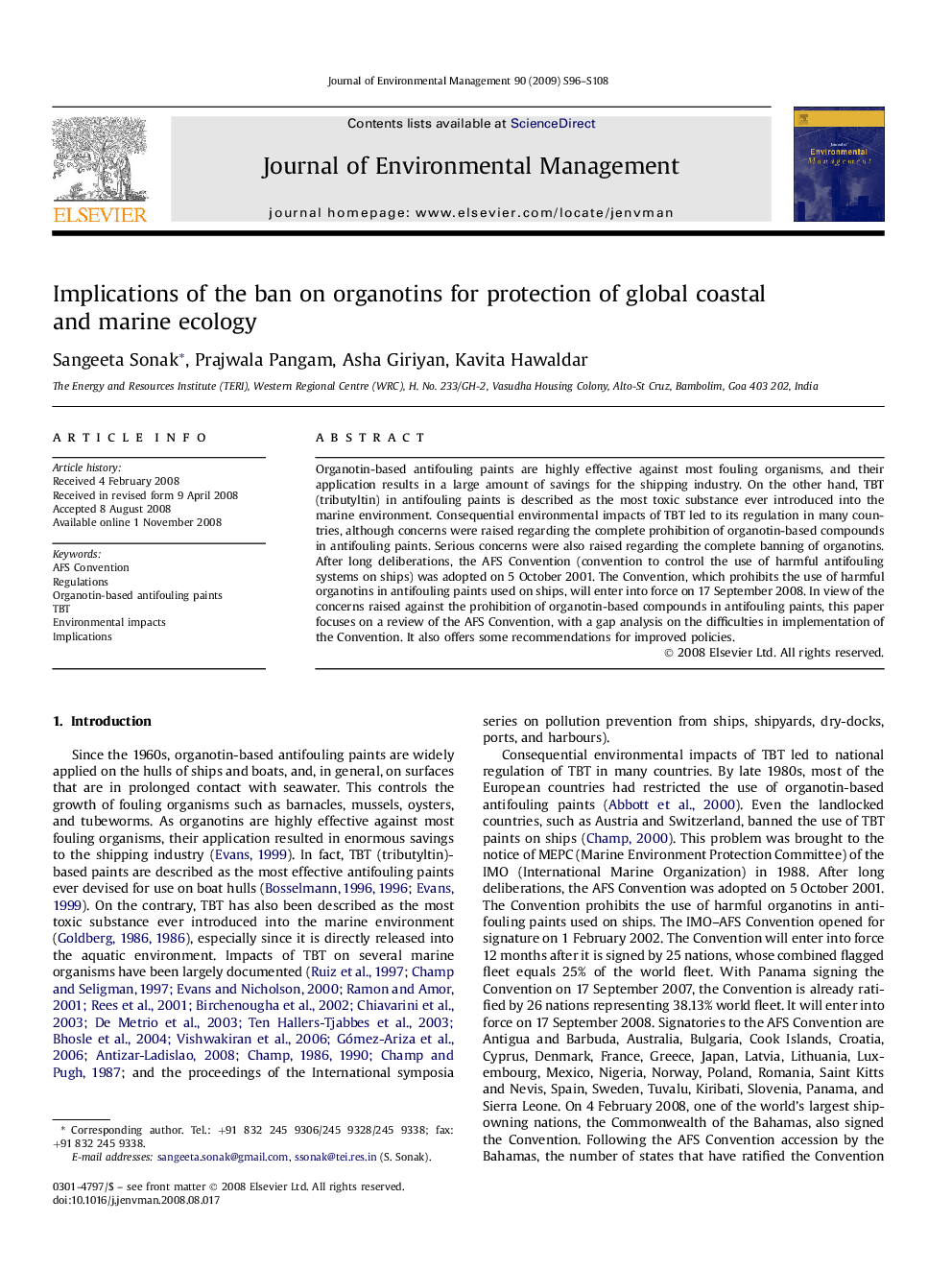| Article ID | Journal | Published Year | Pages | File Type |
|---|---|---|---|---|
| 1058545 | Journal of Environmental Management | 2009 | 13 Pages |
Organotin-based antifouling paints are highly effective against most fouling organisms, and their application results in a large amount of savings for the shipping industry. On the other hand, TBT (tributyltin) in antifouling paints is described as the most toxic substance ever introduced into the marine environment. Consequential environmental impacts of TBT led to its regulation in many countries, although concerns were raised regarding the complete prohibition of organotin-based compounds in antifouling paints. Serious concerns were also raised regarding the complete banning of organotins. After long deliberations, the AFS Convention (convention to control the use of harmful antifouling systems on ships) was adopted on 5 October 2001. The Convention, which prohibits the use of harmful organotins in antifouling paints used on ships, will enter into force on 17 September 2008. In view of the concerns raised against the prohibition of organotin-based compounds in antifouling paints, this paper focuses on a review of the AFS Convention, with a gap analysis on the difficulties in implementation of the Convention. It also offers some recommendations for improved policies.
